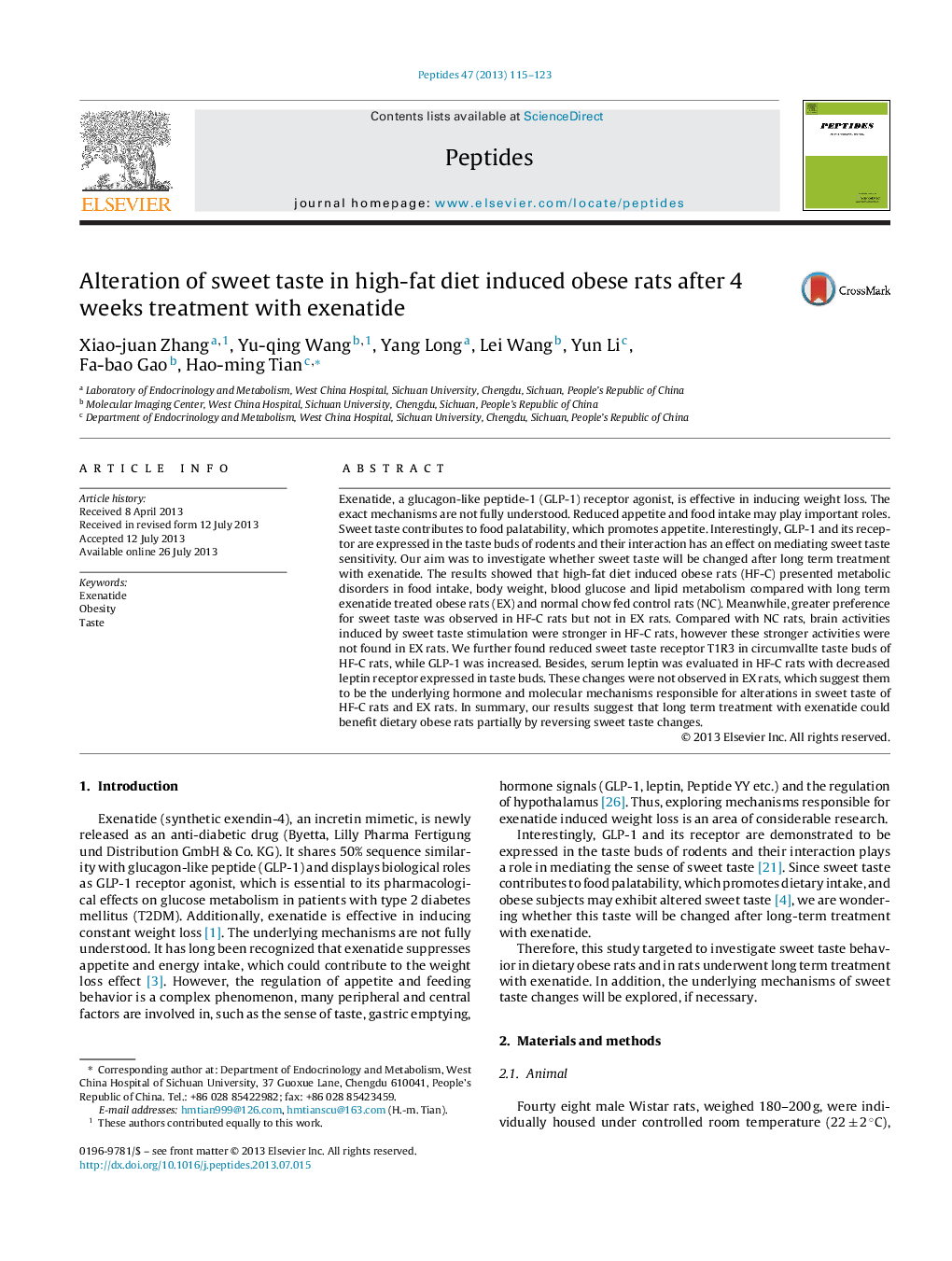| Article ID | Journal | Published Year | Pages | File Type |
|---|---|---|---|---|
| 8348572 | Peptides | 2013 | 9 Pages |
Abstract
Exenatide, a glucagon-like peptide-1 (GLP-1) receptor agonist, is effective in inducing weight loss. The exact mechanisms are not fully understood. Reduced appetite and food intake may play important roles. Sweet taste contributes to food palatability, which promotes appetite. Interestingly, GLP-1 and its receptor are expressed in the taste buds of rodents and their interaction has an effect on mediating sweet taste sensitivity. Our aim was to investigate whether sweet taste will be changed after long term treatment with exenatide. The results showed that high-fat diet induced obese rats (HF-C) presented metabolic disorders in food intake, body weight, blood glucose and lipid metabolism compared with long term exenatide treated obese rats (EX) and normal chow fed control rats (NC). Meanwhile, greater preference for sweet taste was observed in HF-C rats but not in EX rats. Compared with NC rats, brain activities induced by sweet taste stimulation were stronger in HF-C rats, however these stronger activities were not found in EX rats. We further found reduced sweet taste receptor T1R3 in circumvallte taste buds of HF-C rats, while GLP-1 was increased. Besides, serum leptin was evaluated in HF-C rats with decreased leptin receptor expressed in taste buds. These changes were not observed in EX rats, which suggest them to be the underlying hormone and molecular mechanisms responsible for alterations in sweet taste of HF-C rats and EX rats. In summary, our results suggest that long term treatment with exenatide could benefit dietary obese rats partially by reversing sweet taste changes.
Related Topics
Life Sciences
Biochemistry, Genetics and Molecular Biology
Biochemistry
Authors
Xiao-juan Zhang, Yu-qing Wang, Yang Long, Lei Wang, Yun Li, Fa-bao Gao, Hao-ming Tian,
